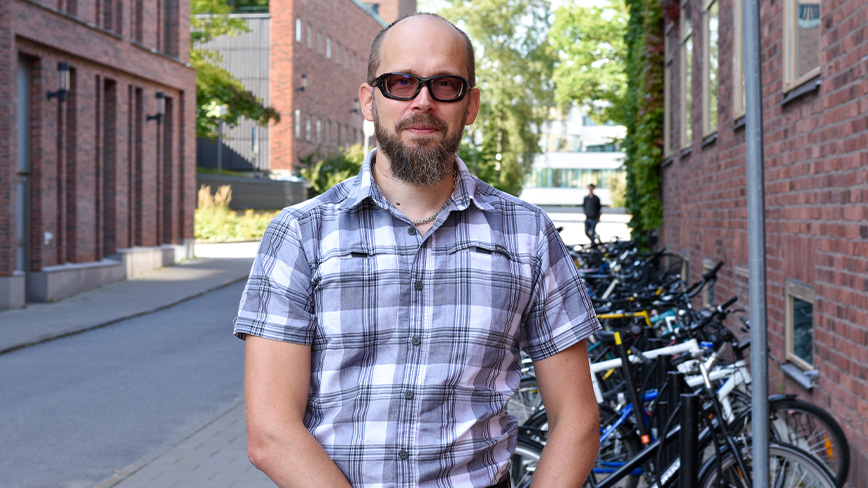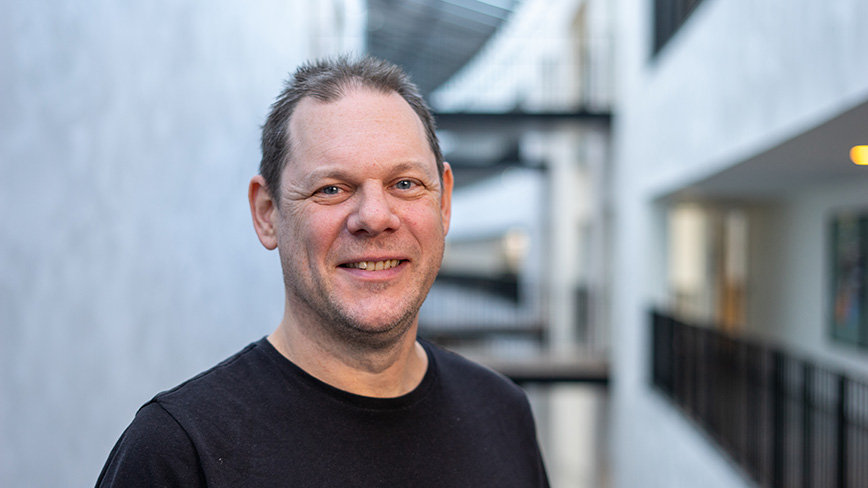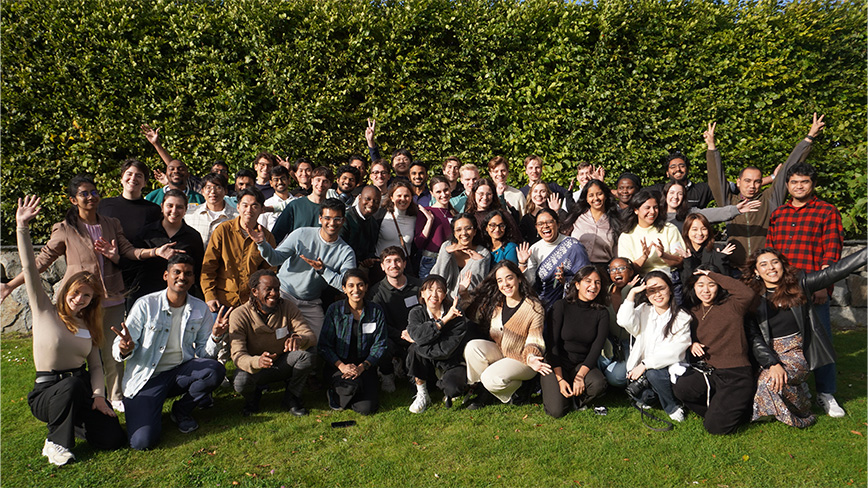Lifelong Learning at EECS – Now and later
Interview with Patrik Hilber

Tackling teachers' greatest fears, recognising our strengths, and a strong internal commitment is Patrik Hilber's recipe for shaping the future of lifelong learning. This article provides insight into how EECS addresses challenges to redefine the boundaries of education, making knowledge accessible to everyone, regardless of age or background.
Since last spring, Patrik Hilber has been EECS's Deputy Director of First and Second Cycle Education and Lifelong Learning Coordinator. His primary mission is to support and facilitate teachers who are either already offering or considering providing courses in continuing professional development.
Patrik's work encompasses mainly strategy but also facilitating new contract education to granting students access to the Canvas digital learning platform.
"We are a team working together to make this possible. To make it seamless and not sleepless it requires cooperation with the education administration, contract management, and communication within the school," says Patrik.
Patrik shares his vision for the future, where collaboration and communication within the school can deepen and improve, drawing inspiration from examples at other educational institutions.
"There is room for closer collaboration, not only within our team but also with other groups within the school. We must provide our teachers with more active support. Many situations require significant administrative efforts, resulting in a loss of time and resources."
The administration can seem daunting
One of the biggest challenges for teachers looking to engage in lifelong learning is the potential administrative burden that can seem overwhelming. Patrik identifies two main aspects:
"Firstly, the application process to start a course can be perceived as unclear and complex. Secondly, it requires a significant internal workload."
Looking ahead, Patrik suggests that clear procedures, along with increased collaboration, need to be developed so that support functions can better assist teachers.
Another challenge is poor student completion rates. We must work on improving this over time, which likely varies depending on the course.
"One way to increase course completion rates is to reevaluate the assessments. For example, offering micro-assessments provides a more continuous form of evaluation."
Doing more of what works
KTH's goal is for 20% of educational activities to consist of continuing education within ten years, a 25% increase from current levels. This requires a range of measures.
"On the path forward, we must recognise that we are already doing many things well. We must continue to build on these successes. We already have several in-demand topics with good collaboration partners, but there could be more. Our task is to listen to the industry's needs and offer our expertise in formats they can benefit from."
More resources are needed to develop the business further, including individuals who can work full-time with freestanding courses.
"We can simply scale up what already works for large groups. If a 7.5-credit course is successful as a programme course, a separate 3-credit course may be suitable. There is a mutual benefit for both KTH, industry and students through this with broader contacts and opportunities for research collaborations. Alternatively, we can work on improving and expanding online courses or offer programme courses for professionals.”
High internal engagement
There is a significant internal commitment to developing lifelong learning at EECS, and Patrik emphasises the importance of ensuring that necessary resources are available to drive this development.
"We are currently in the process of identifying areas for improvement. We have received valuable feedback from internal resources, which is very encouraging. The challenge is ensuring we have adequate resources and an organisation to enable this expansion. Expansion is a necessary risk to take, requiring strong commitment."
Patrik concludes that there are other institutions that have succeeded and failed on this journey and that we can learn from them to make lifelong learning a good opportunity.
Text: Charlotta Alnersson
Related news

Meet Torbjörn Gräslund, new GA at CBH
Torbjörn Gräslund is a professor of medical protein technology, and his research focuses on designing proteins for medical applications. As of 1 January, this year, he is also the new Director of Firs...
Read the article
New master's programme in sustainable digitalisation
High requests from both students and staff at KTH resulted in the new master's programme being established at record speed. It is now open for applications, with study start in August 2024.
Read the article
They have a crucial role in student recruitment
Every year, the ambassadors guide almost 100 groups on campus, answer 2000 enquiries, visit schools and participate in educational fairs. When asked, approximately half of the prospective students say...
Read the article
